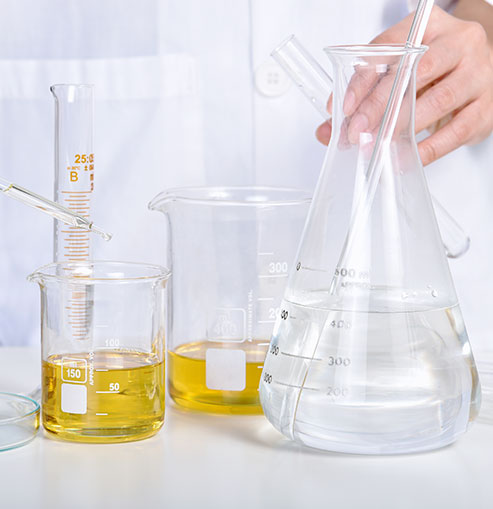 March 2023
March 2023The Science Behind Corrosion Prevention of Metals: Understanding the Process
Corrosion is the gradual destruction of metal surfaces due to chemical reactions. It is a natural process that occurs when metals react with their environment. Metal corrosion is a significant issue in many industries, leading to equipment failure, production downtime, and maintenance costs. Therefore, it is crucial to understand the science behind corrosion prevention of metals to reduce the impact of this problem.
What is Corrosion?
Corrosion is a process that occurs when metal is exposed to an environment that contains water, oxygen, and other chemicals. It is an electrochemical reaction that happens on the surface of the metal. The corrosion process involves anodic and cathodic reactions. Anodic reactions involve the metal atoms losing electrons, which creates metal ions, and cathodic reactions occur when electrons combine with hydrogen ions in the environment, which creates hydrogen gas.
In other words, corrosion involves a flow of electrons from the anode to the cathode, which creates a current flow. The anode is the metal surface that is corroding, and the cathode is the environment that it is exposed to. The process results in the formation of metal oxide, which is a compound that covers the metal surface and causes it to weaken and degrade over time.
Read Also : How Rust Inhibitor Oil Works to Prevent Corrosion of Metal Surfaces?
Understanding the Corrosion Prevention of Metals
There are different ways to prevent corrosion, but it starts with understanding the process. Corrosion prevention involves identifying the environmental factors that lead to corrosion, and then taking steps to limit their impact. Here are some common methods of corrosion prevention:
Coatings: One of the most effective ways to prevent corrosion is by applying a protective coating to the metal surface. Coatings can be made from different materials such as rust preventive oil, wax, paint, plastics, or metals. They act as a barrier that separates the metal from the environment and limits the exposure of the metal surface to the corrosive substances.
Inhibitors: Inhibitors are chemicals that are added to the environment in which the metal is placed to reduce the rate of corrosion. Inhibitors work by forming a protective layer on the metal surface, preventing the metal from reacting with the environment. Inhibitors can be added to the metal surface or to the environment surrounding the metal.
Cathodic protection: This is a technique that involves the use of a sacrificial anode, which is a metal that is more reactive than the metal that needs protection. The sacrificial anode corrodes first, which means that it takes the place of the metal that needs protection. Cathodic protection is commonly used in the maritime industry to protect metal structures such as ships and offshore platforms.
Alloy selection: Another method of corrosion prevention is to select metals that are resistant to corrosion. This involves identifying the type of corrosion that is most likely to occur in the environment and selecting metals that are resistant to it. For example, stainless steel is a popular material for food processing equipment because it is resistant to corrosion in acidic environments.
Proper maintenance: Regular inspection and maintenance of metal surfaces can prevent corrosion by identifying and fixing potential issues before they become significant problems. This can include cleaning the metal surface to remove any corrosive substances and applying a protective coating.
Read Also : Choosing the Right VCI Film Manufacturer: What to Look For?
Corrosion prevention by Nox-Rust® Rust Preventive Oil, Wax and Daubert VCI®
Nox-Rust® Rust Preventive Oils & Wax and Daubert VCI® are effective corrosion prevention methods that protect metal surfaces from the harmful effects of corrosion.
Nox-Rust® Rust Preventive Oils & Wax are specially formulated to provide long-term protection against corrosion. It is based on CCI (Contact Corrosion Inhibition) technology. The oils penetrate the metal surface, displacing moisture and forming a protective barrier that prevents moisture and other corrosive agents from reaching the metal surface. These oils are ideal for use in various applications, including metal storage, shipping, and outdoor equipment.
Daubert VCI® is another effective method for preventing corrosion. It uses volatile corrosion inhibitors (VCIs) to protect metal surfaces. These inhibitors form a protective layer on the metal surface, preventing the metal from coming into contact with moisture and other corrosive substances. Daubert VCI® is available in various forms, including papers, films, and bags, and is ideal for use in various applications, including metal storage, shipping, and manufacturing.
Nox-Rust® Rust Preventive Oils & Wax and Daubert VCI® are both effective methods for preventing corrosion, and they can be used in combination for even greater protection. These methods are widely used in the automotive, aerospace, and manufacturing industries to prevent corrosion and extend the life of metal components. They are essential for the longevity and durability of metal parts and help prevent costly repairs and replacements.
By Mudit Mathur
(Senior Manager, Product Management & Marketing)

